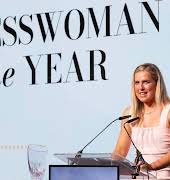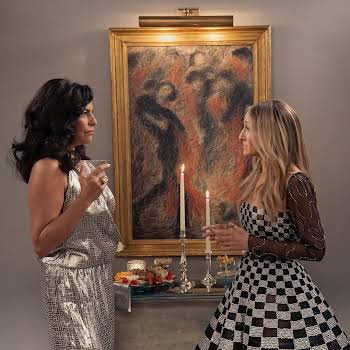
In a world where social media is tragically and overwhelmingly negative, shouldn’t any sort of positivity be seen as good thing? Not necessarily, writes Amanda Cassidy
Ironically, it was Jameela Jamil who, lashed out at so-called toxic positivity. The controversial actress and radio presenter launched a scathing attack recently on those who gloss over her chronic health problems with a ‘get on with it’ attitude.
As part of her ongoing spat with GMTV presenter Piers Morgan, Jamil wrote a detailed explanation of the health challenges she faces, which include the fallout from two car accidents, EDS, MCAS, POTS, mercury poisoning, chronic pain and depression.

She describes her invisible disabilities as “traumatizing and isolating” and said the online criticism of her opening up about such issues “triggered me to a point of near-death”.
“I have a fragile past with suicide. If you live in pain and have to survive a lot, just to still be here, it’s *agonizing* to have people tell you that you made it up. I would have preferred a happier, pain-free, life with more fun and experiences rather than just struggling through month to month.
What happened to me was incredibly cruel and scary and it triggered a lot of people who live in the same situation as me”.
Telling us to fear the fear and do it anyway. Or to take a deep breath and just do it is not only patronizing but misinformed and just plain annoying.
Pain
Immediately, thousands of chronic pain/invisible disability/mental health sufferers jumped to her defense. citing toxic positivity as a huge issue they face day to day.
“It’s a real problem for those of us with chronic health issues.” wrote Insommni Artnz on Twitter. “It’ll get better, you just need to get out and do it” blah, blah, blah, it’s awful.”
Another said they were sick of faux-positive statements that disregard the fact that to be negative is part of being human ?— a yin to the yang of being positive.
“Telling us to fear the fear and do it anyway. Or to take a deep breath and just do it is not only patronizing but misinformed and just plain annoying. When you are in pain 24/7 nobody can understand, let alone quote positive bumper sticker type phrases AT you.”
You know what they mean…Instagram is bursting with them. Phrases designed to make you focus on the good, make you ‘reach for the stars’ with ‘good vibes only’.

Buzzkill
‘Happiness is a choice’ might sound harmless enough but, although well-intentioned and said in an attempt to focus on the good, they can also be dismissive and shaming, minimizing life’s real and genuine pain.
They are also monumentally unrealistic.
Every day we, as humans, deal with grief and loss; the end of a relationship, the worry of a sick child, recovering from trauma, struggling with mental health, juggling day to day stresses. Heartbreak, fear and pain might be horrible, but they are part of being a human and it is important to feel and express them.
The trouble with toxic positivity is that it says ‘you’re a buzzkill, you are weak, there is no room for those feelings here.’
And here’s the thing ?— the pursuit of happiness doesn’t have to come hand in hand with the rejection of anything that might be perceived as ‘bad’. We have the capacity to do both in healthy ways.
Well-meaning

It inevitable that a platform like Instagram was always going to promote a form of escapism. ‘Influencers’ need a mantra and nobody wants to be the one that pushes pain.
But the main problem with the happy-clappy inspirational positivity, explains psychologist Tara Gardner, is that often, these sentiments land the wrong way.
We live in a society where everything seems to have a quick fix
“These types of responses lack authenticity, not allowing room for the other person to process feelings and emotions. It can cause conflict within relationships because people feel that their situation and emotions are not important, simply a perception.”
Equally, all those invitations to perk up, smile and be the Pollyanna in every situation can get on anyone’s nerves. I, for one, am sick of finding the good in everything. Sharing negative emotions doesn’t make us the black sheep of Instagram. Not every problem is solved by nodding appreciatively at positivity quotes when the bottoms fall out of our lives.
Superior
Arguably, it can even hinder.
Gwen sufferers with an illness that manifests itself in every part of her life and causes challenges at every turn. She believes that the mentality that she can just ‘snap out of it’ is insulting and makes her feel worse.
Emotions are not “good” or “bad,” all positive or all negative. Instead, think of them as guidance
“It is ok to feel shitty sometimes. It is ok to want to roll all that anger around in your head for a bit. I think the problem is that we live in a society where everything seems to have a quick fix. Sometimes that doesn’t apply to everyone. I don’t want to feel like I’m failing by not always trying to find the positivity in every situation.”
Some believe it is partly a result of religion ?— the ‘everything happens for a reason’ school of thought. Others cite it as a superiority complex. I can be happy, why can’t you?
Trying to pick up someone who is down can also be a challenge. So how to you prevent yourself from falling into the toxic positivity category? Dr Luckin Konstantin, a psychologist, has these tips.
“When you deny or avoid unpleasant emotions, you make them bigger. Avoiding negative emotions reinforces this idea: Because you avoid feeling them, you tell yourself that you don’t need to pay attention to them. . Evolutionary-speaking, we as humans cannot program ourselves to only feel happy. Emotions are information and we need to listen to how we can process that information.
Compassion
Emotions are not “good” or “bad,” all positive or all negative. Instead, think of them as guidance. Accepting difficult emotions helps with coping and with decreasing the intensity of those emotions.”
So compassion, acknowledging and distracting can be the tools needed to find your own level of optimism.
While Jameela Jamil might not be the posterchild for positivity when it comes to social media, no one can be a ray of sunshine 24/7.
In fact, paying attention and processing your emotions as they come and go may help you better understand yourself, and those around you.
Read more: Coercive control: 10 warning signs and where to go for help
Read more: High functioning anxiety: the signs, symptoms and when to seek help
Read more: Online harassment and trolling: how to handle cyber-bullying as an adult





















